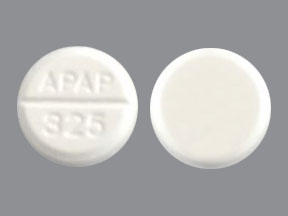
Eq Pain Reliever Coupons & Savings Card – Discount Prices from $4.34
Brand for: Acetaminophen
My prescription
Edit
325MG, Acetaminophen (30 Tablets)
Select pharmacy

Albertsons
$4.34
COUPON PRICE
Walgreens
$4.34
COUPON PRICEEq Pain Reliever savings card
Show this card to your pharmacist
Albertsons
$4.34
BIN
ID
PCN
GRP
011867
LHA391AAC2
HT
LABH001
Powered by
More prescriptions for pain
More prescriptions for pain
Price history for Eq Pain Reliever (brand) & Acetaminophen (generic)
30 Tablets, 325MG
Average retail price for Eq Pain Reliever
Average retail price for Acetaminophen
Average SaveHealth price for Acetaminophen
Our price history data is based on aggregated prescription data collected from participating pharmacies in America. Our prescription data updates daily to reflect the latest price changes. If you notice a missing data point, it means there wasn't sufficient data available to generate a monetary value for that date.
Over the last 12 months, the average discount price of Eq Pain Reliever is $2.39 using the SaveHealth savings card. That's an average savings of 40.25% on Eq Pain Reliever with our discount card.
*Retail prices are based on pharmacy claims data, and may not be accurate when we don't have enough claims.
Eq Pain Reliever (Acetaminophen) dosage forms
Dosage Quantity Price from Per unit 325MG 30 Tablets $9.59 $0.32 325MG 6 Tablets $9.12 $1.52 325MG 9 Tablets $9.18 $1.02 325MG 10 Tablets $9.20 $0.92 325MG 12 Tablets $9.23 $0.77 325MG 16 Tablets $9.31 $0.58 325MG 20 Tablets $9.39 $0.47 325MG 24 Tablets $9.47 $0.40 325MG 40 Tablets $9.78 $0.24 325MG 50 Tablets $9.98 $0.20
| Dosage | Quantity | Price from | Per unit |
|---|---|---|---|
| 325MG | 30 Tablets | $9.59 | $0.32 |
| 325MG | 6 Tablets | $9.12 | $1.52 |
| 325MG | 9 Tablets | $9.18 | $1.02 |
| 325MG | 10 Tablets | $9.20 | $0.92 |
| 325MG | 12 Tablets | $9.23 | $0.77 |
| 325MG | 16 Tablets | $9.31 | $0.58 |
| 325MG | 20 Tablets | $9.39 | $0.47 |
| 325MG | 24 Tablets | $9.47 | $0.40 |
| 325MG | 40 Tablets | $9.78 | $0.24 |
| 325MG | 50 Tablets | $9.98 | $0.20 |
| 325MG | 56 Tablets | $10.09 | $0.18 |
| 325MG | 60 Tablets | $10.17 | $0.17 |
| 325MG | 90 Tablets | $10.76 | $0.12 |
| 325MG | 100 Tablets | $10.95 | $0.11 |
| 325MG | 120 Tablets | $11.34 | $0.10 |
| 325MG | 150 Tablets | $11.93 | $0.08 |
| 325MG | 200 Tablets | $12.90 | $0.07 |
| 325MG | 240 Tablets | $13.68 | $0.06 |
| 325MG | 250 Tablets | $13.88 | $0.06 |
| 325MG | 300 Tablets | $14.85 | $0.05 |
| 325MG | 500 Tablets | $18.75 | $0.04 |
| 325MG | 700 Tablets | $31.65 | $0.04 |
| 325MG | 1000 Tablets | $37.50 | $0.04 |
| 500MG | 10 Tablets | $9.27 | $0.93 |
| 500MG | 12 Tablets | $9.33 | $0.78 |
| 500MG | 15 Tablets | $9.41 | $0.63 |
| 500MG | 20 Tablets | $9.54 | $0.48 |
| 500MG | 24 Tablets | $9.65 | $0.40 |
| 500MG | 25 Tablets | $9.68 | $0.39 |
| 500MG | 30 Tablets | $9.81 | $0.33 |
| 500MG | 40 Tablets | $10.08 | $0.25 |
| 500MG | 45 Tablets | $10.22 | $0.23 |
| 500MG | 50 Tablets | $10.36 | $0.21 |
| 500MG | 60 Tablets | $10.63 | $0.18 |
| 500MG | 90 Tablets | $11.44 | $0.13 |
| 500MG | 100 Tablets | $11.71 | $0.12 |
| 500MG | 175 Tablets | $13.74 | $0.08 |
| 500MG | 250 Tablets | $15.78 | $0.06 |
| 500MG | 300 Tablets | $17.13 | $0.06 |
| 500MG | 500 Tablets | $31.50 | $0.06 |
| 500MG | 700 Tablets | $36.97 | $0.05 |
| 500MG | 1000 Tablets | $45.10 | $0.04 |
Does Equate pain reliever have ibuprofen in it?
Equate pain reliever products come in various formulations, some of which contain ibuprofen, while others may contain different active ingredients such as acetaminophen. It is important to check the specific product label to determine the active ingredient in the Equate pain reliever being considered.
Using the SaveHealth discount card, what is the price of Eq Pain Reliever without insurance?
Using the SaveHealth discount card, the price of Eq Pain Reliever without insurance is $4.34.
What is the price of Eq Pain Reliever at Walgreens?
The price of Eq Pain Reliever at Walgreens is $4.34.
